Latinx Heritage Month is celebrated annually from September 15th to October 15th to honor the ways in which Latinx communities have contributed and helped shape American society.
In honor of the celebratory month, we asked some of our Latinx faculty and staff to share their reflections on culture, contributions, and achievements within the Latinx community. Here’s what they said.
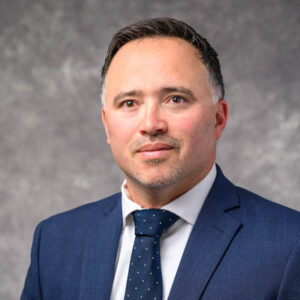
“Today, the Latinx community is made up of individuals who serve in many roles across our nation from small business owners, social workers, educators, health workers, and other professionals who contribute to build the mosaic of our diverse communities.
At UW–Madison, we continue to create spaces where Latinx individuals are represented and belong, and as a community we are actively re-shaping the story of our state.
As a member of the Latinx community, I look forward to celebrating our presence and contributions, but also engaging in dialogue across differences to sustain communities where we can all flourish as individuals.”
Raul Leon
Assistant Vice Provost for Student Engagement and Scholarship Programs
Division of Diversity, Equity & Educational Achievement
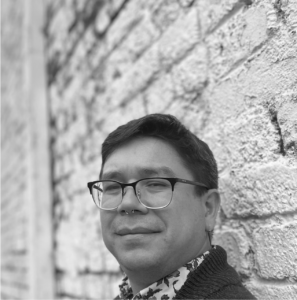 “Just like any other area in the world, Latin America is not a homogeneous place; there are multiple ways of understanding, experiencing, and defining the region. And it’s precisely because of that rich diversity that Latinx communities shape our society in a myriad of ways. It is no exaggeration to suggest that Latinx peoples have enriched US society through their vibrant cultures, knowledges, and, to quote Bad Bunny, their “sazón, batería y reggeatón.” And there is a vibrant Latinx community composed of students, staff, and faculty that calls UW–Madison their home. To honor our community, and building on the Wisconsin Idea, we should strive to put our knowledges, innovations, and scholarly work to the service of broader Latinx communities that have made Wisconsin their home.”
“Just like any other area in the world, Latin America is not a homogeneous place; there are multiple ways of understanding, experiencing, and defining the region. And it’s precisely because of that rich diversity that Latinx communities shape our society in a myriad of ways. It is no exaggeration to suggest that Latinx peoples have enriched US society through their vibrant cultures, knowledges, and, to quote Bad Bunny, their “sazón, batería y reggeatón.” And there is a vibrant Latinx community composed of students, staff, and faculty that calls UW–Madison their home. To honor our community, and building on the Wisconsin Idea, we should strive to put our knowledges, innovations, and scholarly work to the service of broader Latinx communities that have made Wisconsin their home.”
Jorell Meléndez-Badillo
Assistant Professor of Latin American and Caribbean History
Faculty Affiliate, Chican@ & Latin@ Studies Program
Faculty Affiliate, Latin American, Caribbean, and Iberian Studies Program
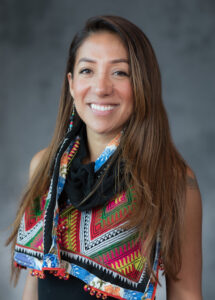 “As a result of colonization, the Latinx community is incredibly diverse. We are not a monolith in any shape or form. Our contributions to society are vast and while we might want to look at professional accomplishments it is worthwhile to highlight the contributions of those who are mostly marginalized such as our undocumented community members as they are often overlooked and dismissed. As an undocumented person, I see the incredibly hard work that other fellow undocumented individuals put into their lives, their families, and communities while carrying the heavy burdens that come with being undocumented. Opening doors and supporting folks who have multiple barriers always benefits the larger community and society as a whole.”
“As a result of colonization, the Latinx community is incredibly diverse. We are not a monolith in any shape or form. Our contributions to society are vast and while we might want to look at professional accomplishments it is worthwhile to highlight the contributions of those who are mostly marginalized such as our undocumented community members as they are often overlooked and dismissed. As an undocumented person, I see the incredibly hard work that other fellow undocumented individuals put into their lives, their families, and communities while carrying the heavy burdens that come with being undocumented. Opening doors and supporting folks who have multiple barriers always benefits the larger community and society as a whole.”
Erika Rosales
Director, Center for DREAMers
Diversity and Inclusion Specialist, WIDA at WCER
4W Director, Immigration and Human Rights
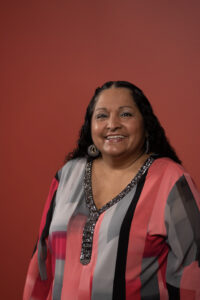 “Latinx Heritage Month is a chance to learn about and appreciate the many contributions of the Latinx community to society. Historically, Latines in this country have endured the weight of racism, marginalization, and underservice, particularly in critical areas such as housing, education, and healthcare. Yet, it has been our resiliency, cultural pride, and our deep-rooted love for family that have consistently made us into leaders within our diverse communities. This and every month, let us reflect on how we can amplify Latinx voices and draw inspiration from Latinx leaders like Cesar Chavez, Dolores Huerta, Sonia Sotomayor, and Ellen Ochoa to help champion equity, celebrate diversity, and promote cultural awareness everywhere we go.”
“Latinx Heritage Month is a chance to learn about and appreciate the many contributions of the Latinx community to society. Historically, Latines in this country have endured the weight of racism, marginalization, and underservice, particularly in critical areas such as housing, education, and healthcare. Yet, it has been our resiliency, cultural pride, and our deep-rooted love for family that have consistently made us into leaders within our diverse communities. This and every month, let us reflect on how we can amplify Latinx voices and draw inspiration from Latinx leaders like Cesar Chavez, Dolores Huerta, Sonia Sotomayor, and Ellen Ochoa to help champion equity, celebrate diversity, and promote cultural awareness everywhere we go.”
Patricia Tellez-Giron MD
Associate Professor
Co-Chair Latino Health Council
School of Medicine and Public Health
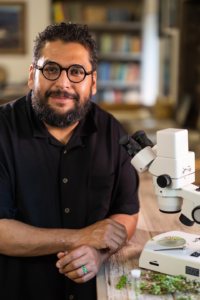 Mexican-American culture is deeply embedded into the fabric of this country. We were here from the beginning and until now, we have contributed to all aspects of American society, with our culture, music, food, labor, and intelligence. We are here and we belong!
Mexican-American culture is deeply embedded into the fabric of this country. We were here from the beginning and until now, we have contributed to all aspects of American society, with our culture, music, food, labor, and intelligence. We are here and we belong!
Juan E. Zalapa PhD
Professor, PAS
Research Geneticist
USDA-ARS, Vegetable Crops Research Unit
Department of Horticulture